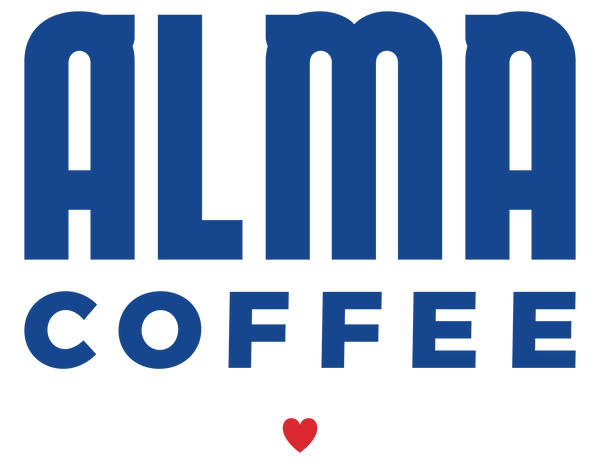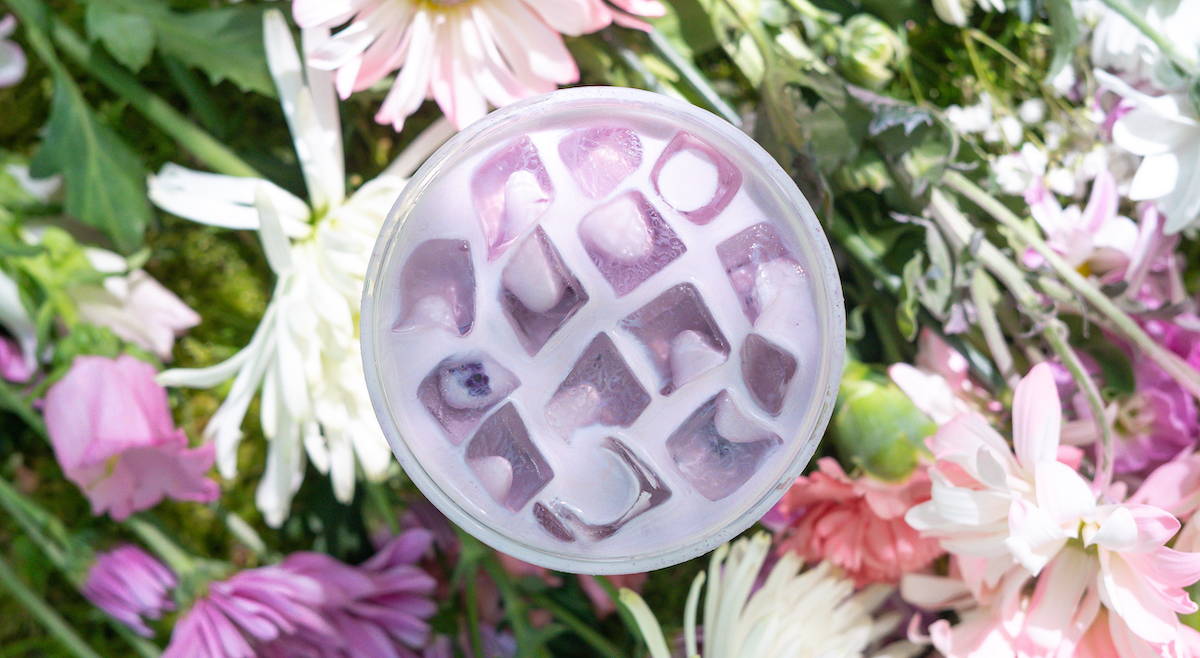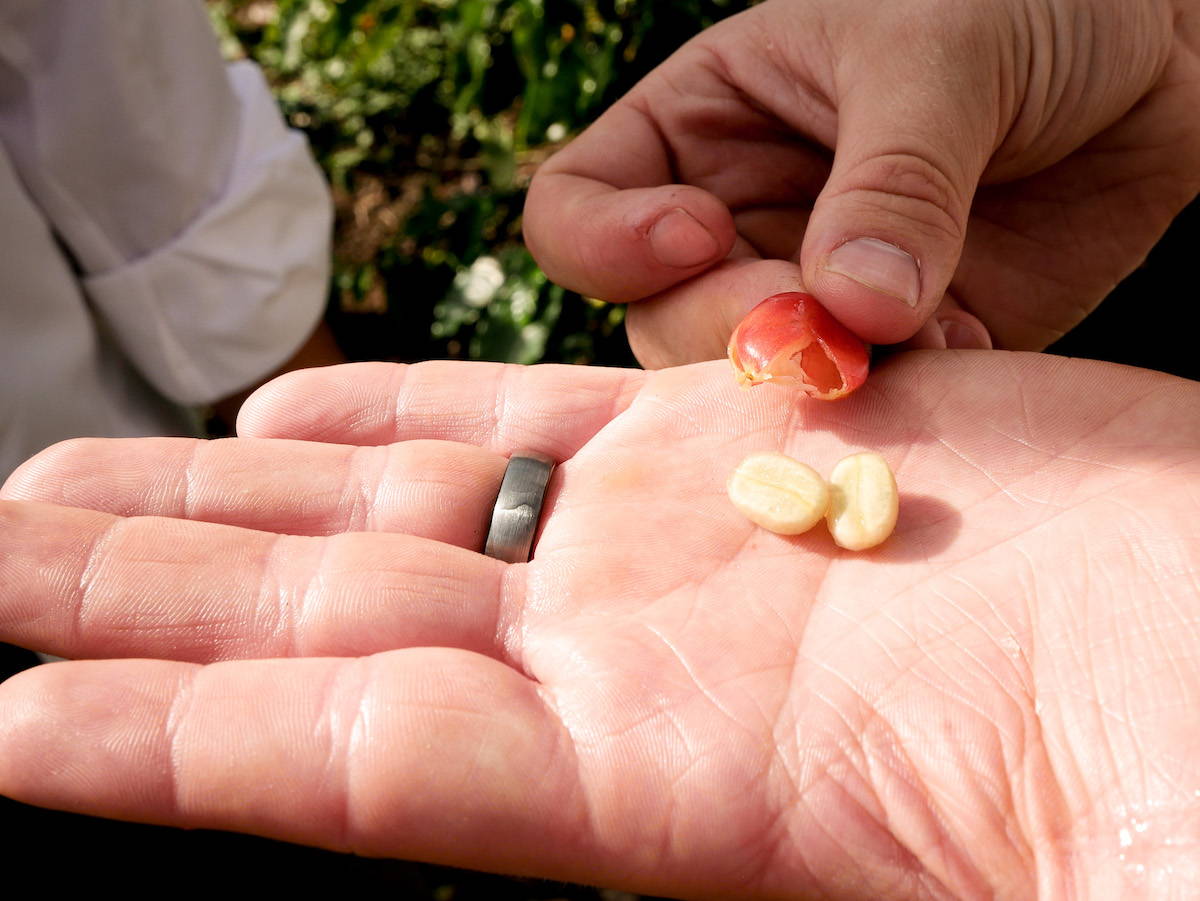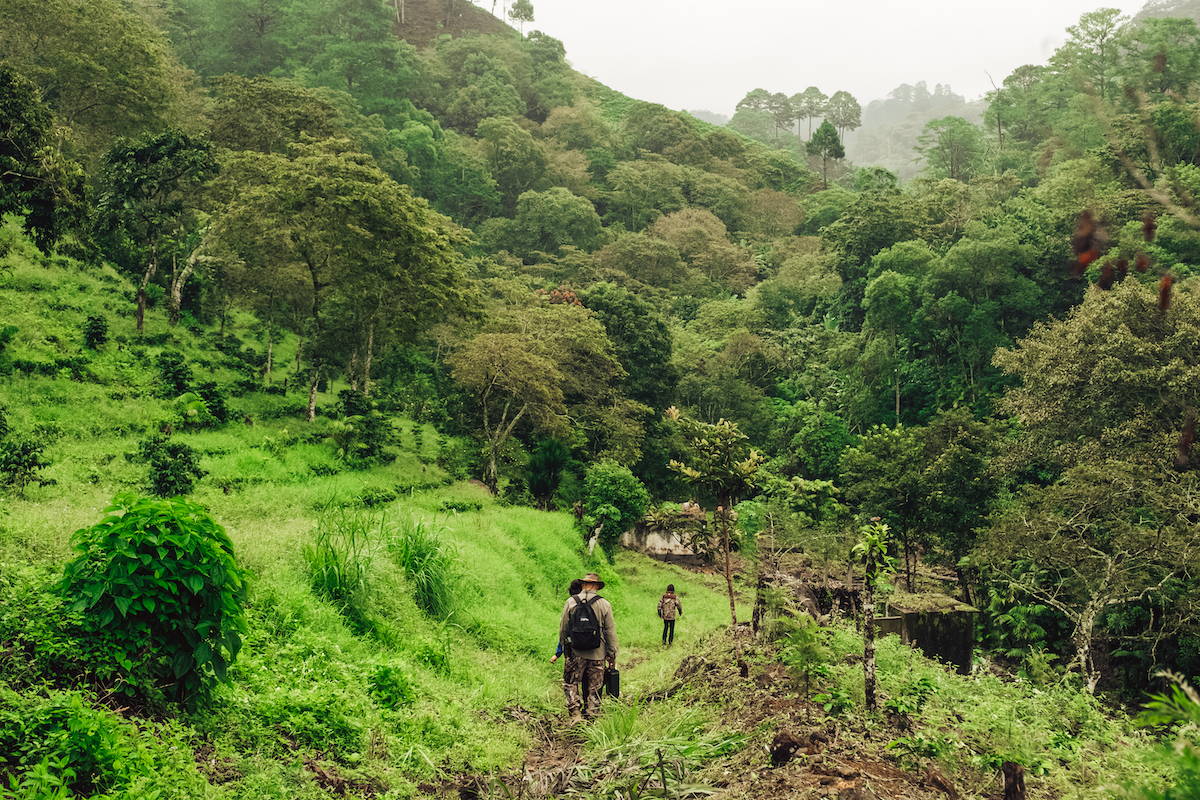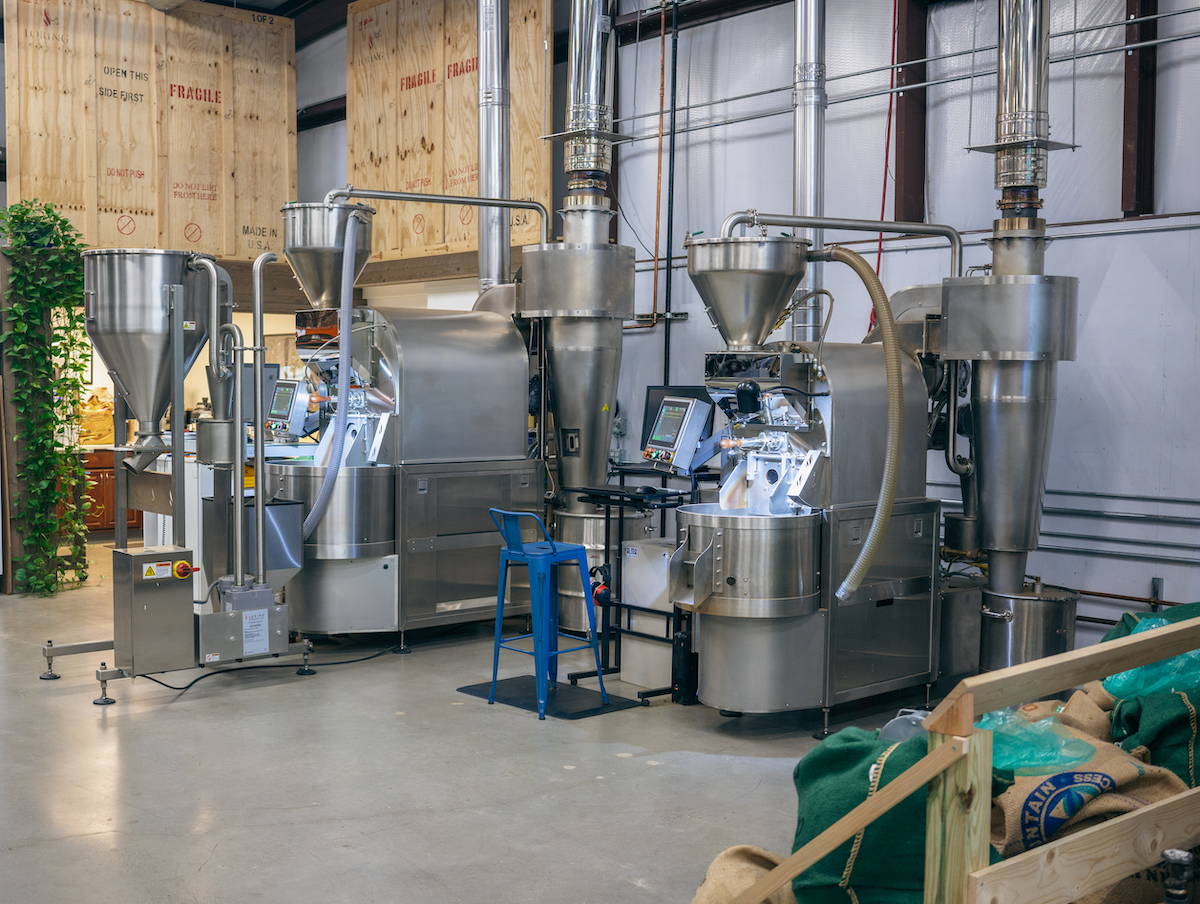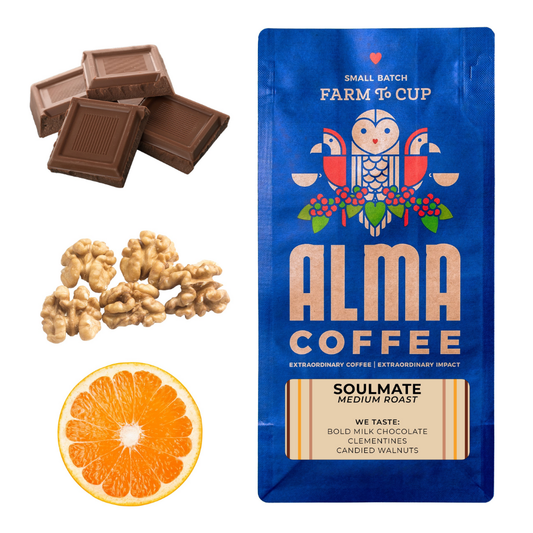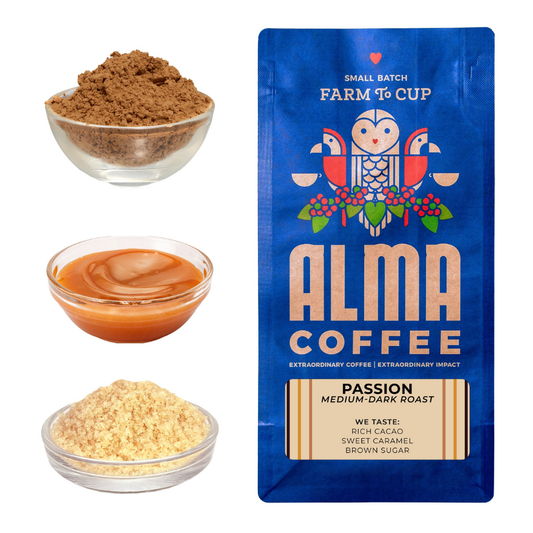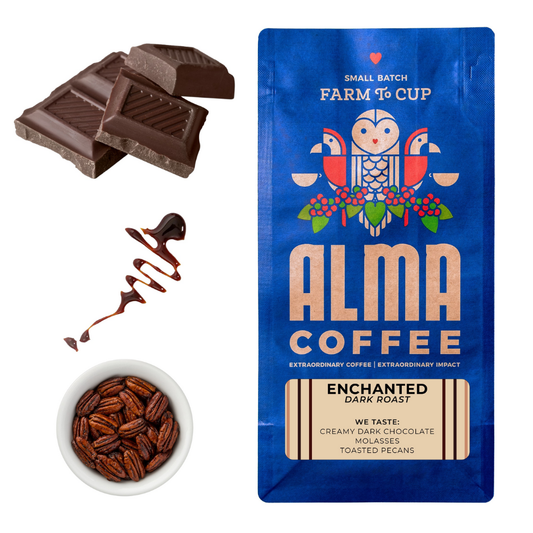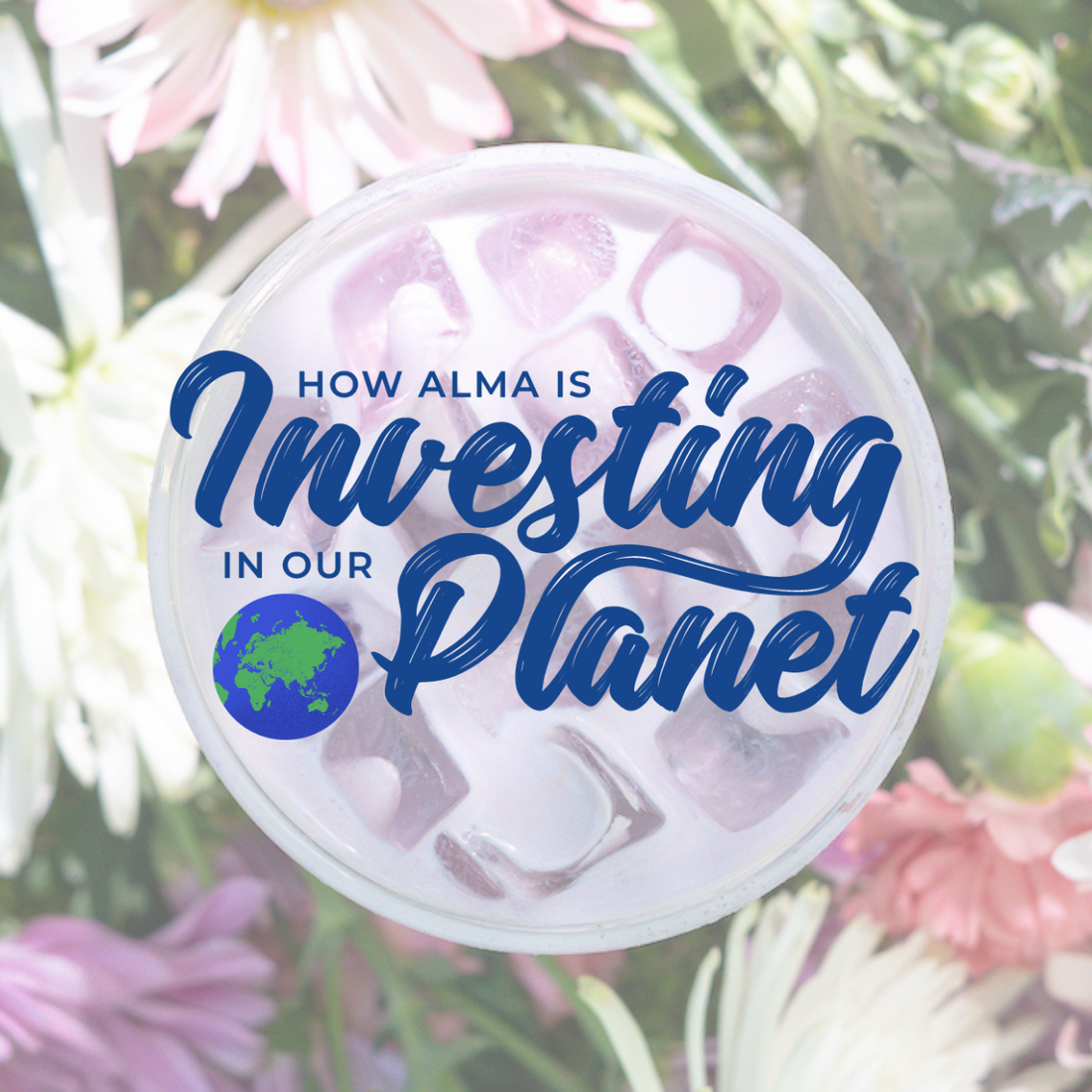
How Alma is investing in our planet
Share
How Alma Coffee is investing in our planet
Written by: ashley labossiere
When Alma Coffee sprouted to life in 2018, the company was built on three pillars: Improving Lives, Sustainable Practices, and Extraordinary Coffee. All of which are still standing strong and remain the foundation to this day. These pillars have allowed Alma to continue to invest in our planet every single day from the Alma Family Farms in Honduras to the roastery and shipping warehouse in Canton, Georgia.
Sustainable practices at the farms
Finca Terrerito (Finca T for short) is one of several Alma Family Farms located in the department of Copán, Honduras. At Finca T, many measures are taken in order for the farm to sustain its organic certification as well as to honor the pillar of Sustainable Practices.
One such measure is to completely avoid using any chemicals on the farm. Instead, the mucilage from the coffee cherries (a byproduct of depulping the cherries) is used as organic pesticide. This action along with the act of de-weeding the land by hand ensures that your coffee is always chemical-free.
Another byproduct of coffee processing is the husks from the coffee cherries, also known as Cascara. If you’ve been in the Alma Familia for a while, you may recognize Cascara as our drinkable, delicious tea, but the bulk of that Cascara is actually collected as the coffee cherries are processed, and used as organic fertilizer.
Not only is this coffee pulp/husk fertilizer 100% organic, studies have shown that it can boost reforestation four times faster than alternative fertilizers. In fact, because Finca T has been utilizing this practice for decades, the farm was recently awarded the “Bird Friendly” certificate from The Smithsonian!
“Bird Friendly coffee is certified organic and produced on farms with a shade cover that provides important habitat for migratory and resident birds in tropical landscapes, which are increasingly threatened by deforestation globally at an unprecedented rate. The Bird Friendly criteria are the world's most stringent standards for shade-grown coffee production.”
Source: Ecological Benefits of Shade-grown Coffee by The Smithsonian
Sustainable practices at Finca T don’t stop at what is put into the soil. They carry on in how the farm employees are treated. Finca T provides organic food, clean water, and safe living quarters and rest areas for all farm employees as they call the farm their home during the harvest season.
Sustainable practices at the roastery
Many of you may have visited our warehouse in Canton, Georgia or have seen it featured on our social media or in our email newsletter. At our warehouse, we roast coffee fresh to order, we pack and ship out all online orders, and we operate a full-service café which is open to the public seven days a week.
To remain sustainable at the roastery, several important measures are taken daily. By sending out the majority of our coffee orders in our recyclable mailers (as opposed to cardboard boxes), we’re not only saving space in our warehouse, we’re also reducing our carbon footprint as the mailers are obviously much lighter than the boxes.
We are also the proud owners of not one but TWO Loring Smart Roasters which our in-house professional coffee roasters use to freshly roast coffee on the daily. Loring Smart Roasters emit 80% less emissions than their counterparts making them the perfect choice to assist us in maintaining our Sustainable Practices pillar.
At the end of every day, our café staff disposes of our espresso pucks and used coffee grinds in our compost pile. This pile is up for grabs by the community to use for garden fertilizer along with our jute coffee sacks which can successfully be used to plant potatoes. In a similar fashion, our roasters dispose of the coffee chaff (the dried skin on a coffee bean which comes off during the roasting process) in a separate compost pile which can be used in a myriad of ways, most often of which is bedding for chickens or other domestic animals. We take “reduce, reuse, recycle” very seriously around here!
What makes Alma Coffee so extraordinary?
A lot of places can make good coffee, but not a lot of places can make good coffee that’s also good for the planet. Alma’s promise is that your cup of coffee isn’t just another commodity. Our coffee means a better life for coffee farmers because Direct Trade = Direct Impact.
While the majority of Alma Coffee comes from our very own Family Farms, we also purchase other-origin coffees (PNG and Rwanda, for example) to help support other coffee farmers who are also practicing sustainability. This ensures those farmers are reaping the full reward for the hard work they’re sewing. This is all possible thanks to you and your support.
When you choose Alma Coffee, not only are you directly investing in coffee farmers, you’re directly investing in our planet. Keep it up.
Interested in learning more about how Alma practices sustainability? Check out Harry and Leticia's Google Autocomplete Interview below!
